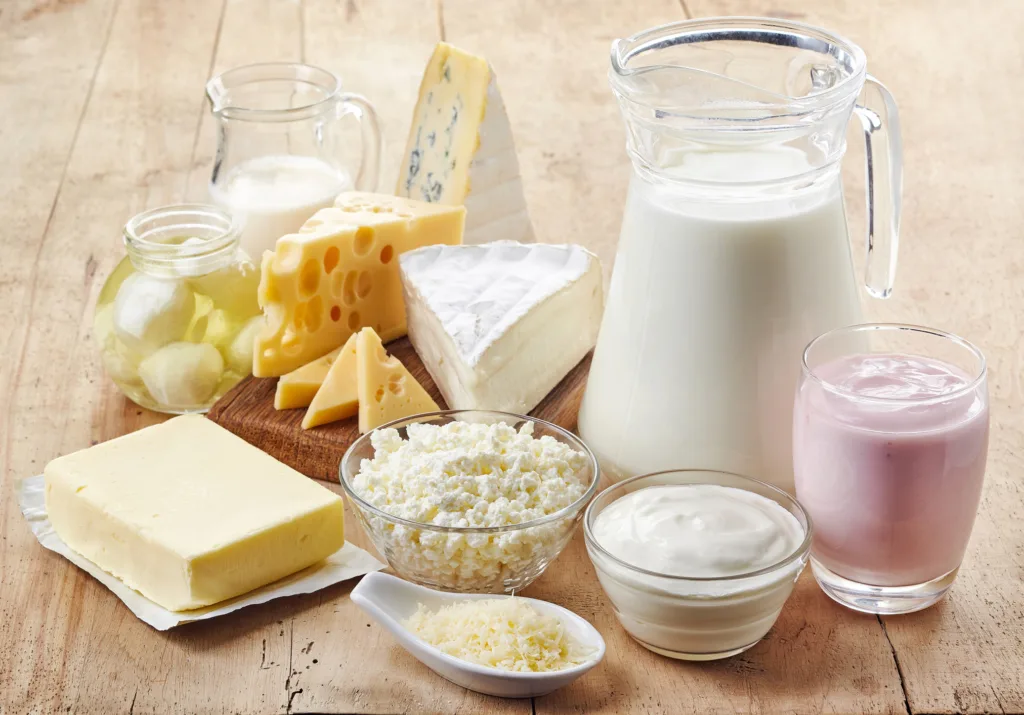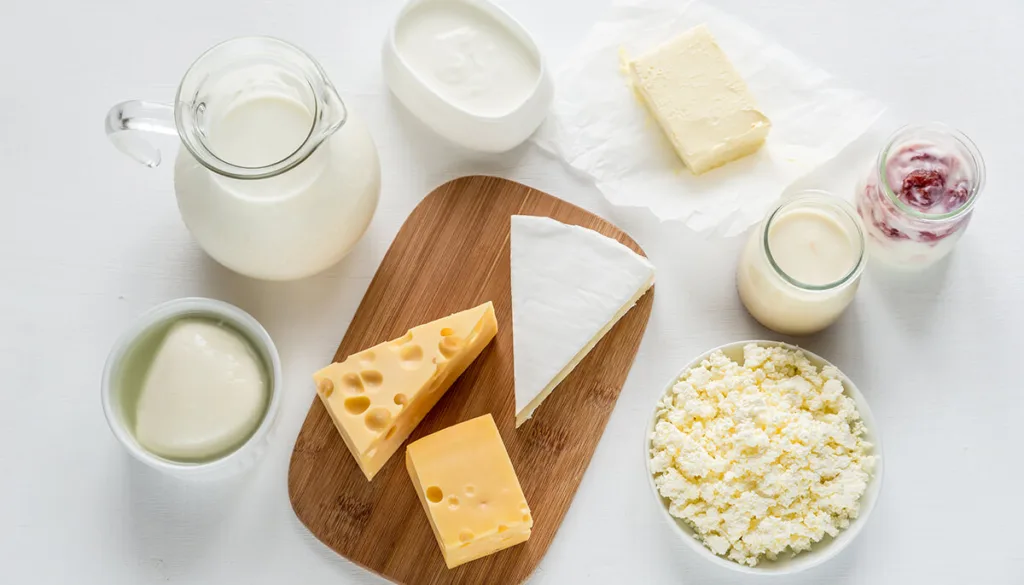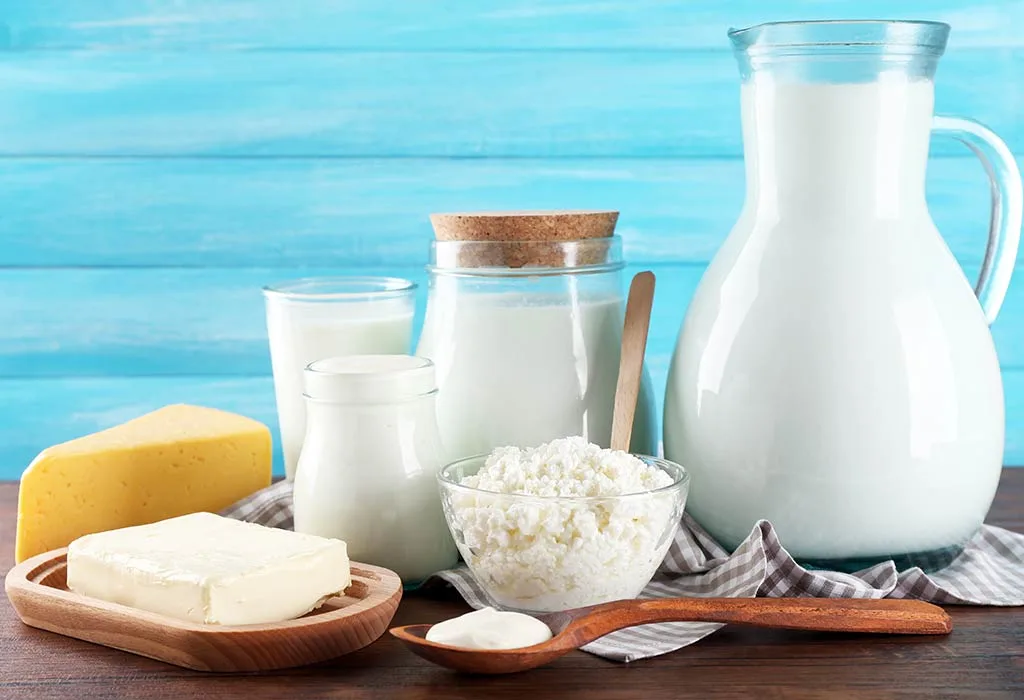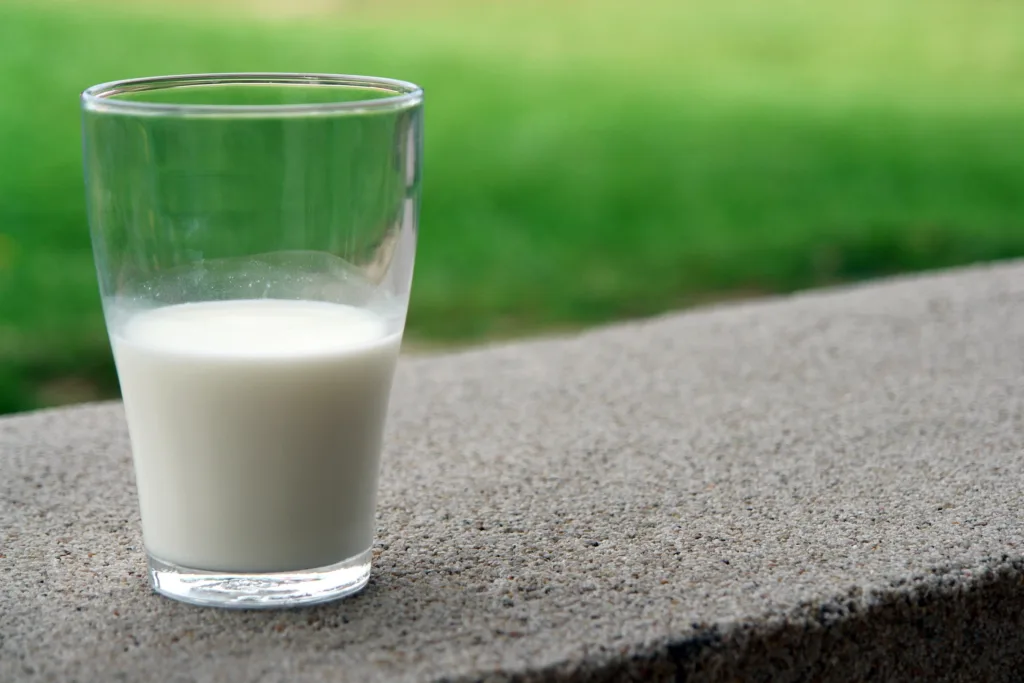Losing weight and keeping it off long-term is no easy feat. With so much confusing or contradictory advice out there on how to slim down, it can be frustrating trying to separate fact from fiction. One food group that is often vilified in the diet world is dairy. You may have heard claims that dairy causes inflammation, leads to weight gain, or that humans weren’t meant to consume milk from cows. But is eliminating dairy really the magic solution for melting away pounds?
As with most aspects of nutrition and fitness, the role of dairy in weight management is complex, with pros and cons to consider. By taking a deeper look at the facts around dairy, you can make informed choices about including it in your healthy lifestyle. In this post, we’ll explore the benefits, best practices, and potential pitfalls to understand dairy’s influence on effective, sustainable weight loss.

Dairy’s Nutritional Benefits
To start, it’s important to recognize the broad nutritional benefits that dairy foods can provide when consumed in proper portions. Milk, yogurt, cheese, cottage cheese, and other dairy products contain a powerhouse combo of:
- High-quality protein: Dairy provides all 9 essential amino acids that our bodies cannot make on their own. These proteins keep you feeling fuller for longer.
- Vitamins and minerals: Dairy contains calcium, potassium, vitamin D, vitamin A, magnesium, and more. These support bone health, muscular and nervous system function, immunity, and more.
- Heart healthy fats: Dairy foods often provide unsaturated fats like conjugated linoleic acid that are linked with improved cardiovascular health.
- Probiotics: Fermented dairy like yogurt contains beneficial bacteria that support digestive and immune system health.
- Essential enzymes: Dairy contains elements like lactase that aid in digestion and nutrient absorption.
By providing this broad spectrum of essential vitamins, minerals, healthy fats, proteins, probiotics and enzymes, dairy can be a nutritious addition to your diet when included as part of a balanced approach.
Dairy and Satiety
Of dairy’s many nutritional benefits, its satiating power truly stands out when it comes to losing weight successfully. Satiety refers to that feeling of fullness and satisfaction that comes after eating. Foods that have high satiety keep you feeling fuller for longer, which helps prevent overeating and unhealthy snacking between meals.
Research shows that high protein foods increase satiety substantially compared to foods lower in protein. Dairy products are packed with protein, ranging from about 8-15 grams per serving. This protein content causes dairy to have powerful hunger-busting effects.
One study found yogurt to be more satiating as a snack compared to lower protein options like fruits or crackers. Another study revealed that adults who ate low-fat dairy snacks were less hungry and consumed 100 fewer calories at subsequent meals than adults who chose carb-based snacks.
If you struggle with intense hunger, cravings, or grazing between meals, choosing more satiating high-protein dairy foods is a smart strategy. Greek yogurt, cottage cheese, milk, and cheese are portable options you can keep on hand to stay satisfied on your journey towards a healthier body.

Dairy’s Potential Role in Fat Loss
In addition to keeping you full and preventing overeating, emerging research shows dairy may play other beneficial roles in supporting fat loss when trying to slim down.
Several studies have found connections between dairy consumption and:
- Increased breakdown of fat
- Reduced body fat especially around the midsection
- Higher amounts of fat excretion through stool
- Improved body composition with building muscle and losing fat mass
The combination of dairy’s protein, calcium, vitamin D and other nutrients are believed to help optimize fat metabolization in the body. The fatty acids, enzymes, and bioactive elements in dairy may help support a favorable body composition for weight management.
More research is still needed to make conclusive determinations on dairy’s metabolism and weight regulating effects. However, the existing science indicates dairy may directly facilitate fat burning when included as part of a healthy diet.
Healthy Ways to Add Dairy to Your Diet
Hopefully this gives you a new perspective on why dairy can be a nutritious addition to your diet when trying to lose weight! Here are some healthy tips for incorporating dairy products:
1. Choose plain, unsweetened varieties like plain Greek yogurt and cottage cheese. This allows you to control calories and added sugars.
2. Use dairy in recipes to boost nutrition in meals like oatmeal, smoothies, soups, and chilis. Every little bit of protein, calcium, and vitamins helps.
3. Add dairy foods to snacks like yogurt parfaits, cottage cheese and fruit, or a cheese stick for an on-the-go option.
4. Select primarily low-fat or nonfat dairy options as the leanest source of protein, limiting calories from saturated fat.
5. Measure your servings to keep portions in check and prevent overconsumption of calories.
6. Eat dairy alongside other foods like fiber-rich fruits, veggies, and whole grains for balanced nutrition and blood sugar regulation.
7. Drink milk post-workout to support muscle recovery and growth while rehydrating.
With some creativity and mindfulness, you can incorporate dairy as a tasty addition to a healthy diet geared for weight management.

Potential Drawbacks of Dairy
To give a balanced perspective, there are some potential drawbacks linked with dairy consumption that are important to note:
Lactose intolerance: Many people lack sufficient lactase enzyme to fully digest lactose in dairy. This causes gas, bloating, and other unpleasant GI symptoms after dairy consumption. Luckily, many lactose-free milk and dairy alternatives exist.
Milk allergies: Some individuals suffer from an immunoglobulin E antibody-mediated immune response to the proteins in dairy milk. This is especially common in young children but can affect anyone at any life stage.
Added hormones: Unless organic varieties are chosen, conventional dairy contains traces of growth hormones given to cows. The impact of these hormones in humans is controversial.
Saturated fat content: Full-fat dairy products can be high in saturated fat, which raises blood cholesterol levels if consumed in excess. Leaner or low-fat varieties are widely available.
Acne risk: Some research observes a correlation between dairy intake and acne development, linked to dairy’s hormone content. More studies are needed to confirm causation.
For most people, moderate dairy consumption as part of a varied diet poses little risks. But each individual may have differing tolerances. Paying attention to how your own body responds to dairy after gradually increasing intake can help determine if it agrees with your digestive system and overall health goals.
The Importance of Moderation
When incorporating dairy into your meals and snacks, moderation is key just as with any part of a healthy diet. While the nutrients in dairy can provide benefits, the calories can add up if portions are not kept in check. Here are some tips for keeping your dairy intake reasonable:
- Stick to the standard serving sizes for different dairy products based on their nutrition labels. Don’t go overboard pouring that bowl of cereal milk.
- Limit higher fat dairy foods like butter, cream, and full-fat cheese to occasional small servings, opting for leaner versions like low-fat milk and yogurt most often.
- Avoid adding multiple types of dairy to a single meal or snack, like cheese on top of creamy yogurt. Spread dairy foods throughout your day’s nutrition instead.
- If trying to reduce calories for weight loss, avoid liquid calories from sweetened dairy beverages like chocolate milk, sweetened coffee drinks, or sugary fruit smoothies.
- Compare labels and choose lower sugar yogurts or look for the no sugar added varieties. The sugar in flavored yogurts can add up.
Your personal calorie needs and health goals will determine how much dairy you can reasonably fit into your nutrition plan. But focusing on leaner dairy options and keeping portions in check allows you to reap dairy’s perks without going overboard.

The Takeaway on Dairy and Weight Loss
Research continues seeking definitive answers on dairy’s complex relationship with body weight regulation and fat burning. But the existing evidence points to dairy being a beneficial component of a healthy diet when consumed mindfully.
Dairy provides high-quality, satiating protein, vitamins, minerals, enzymes and fatty acids that offer broad nutritional benefits. Emerging science suggests dairy may directly facilitate fat metabolization as well. Meanwhile, substituting dairy foods for less nutritious choices can be an effective way to cut calories without deprivation.
The key is choosing natural, reduced fat dairy options most often and keeping close track of your portions. Avoid going overboard on full-fat varieties high in saturated fat and calories. Those with lactose intolerance can look to lactose-free brands or plant-based milk alternatives like soy, almond, and oat milk.
Listen to your body’s signals and adjust your dairy intake accordingly based on your personal tolerances. But for most people, enjoying dairy’s nutritional benefits can absolutely complement an effective, balanced approach to losing weight and optimizing your health.
Thank you for reading this post, don't forget to subscribe to our free newsletter
!

